Cover image credit: Kraft74/Shutterstock.com
When on the islands, you might like to speak like an islander. It’s worth a try, at least! You can dive into the local lingo of Caribbean islands like Jamaica as part of your next vacation. There are plenty of reasons to do this, including connecting with people, being more courteous, and getting a real feel of the local culture.
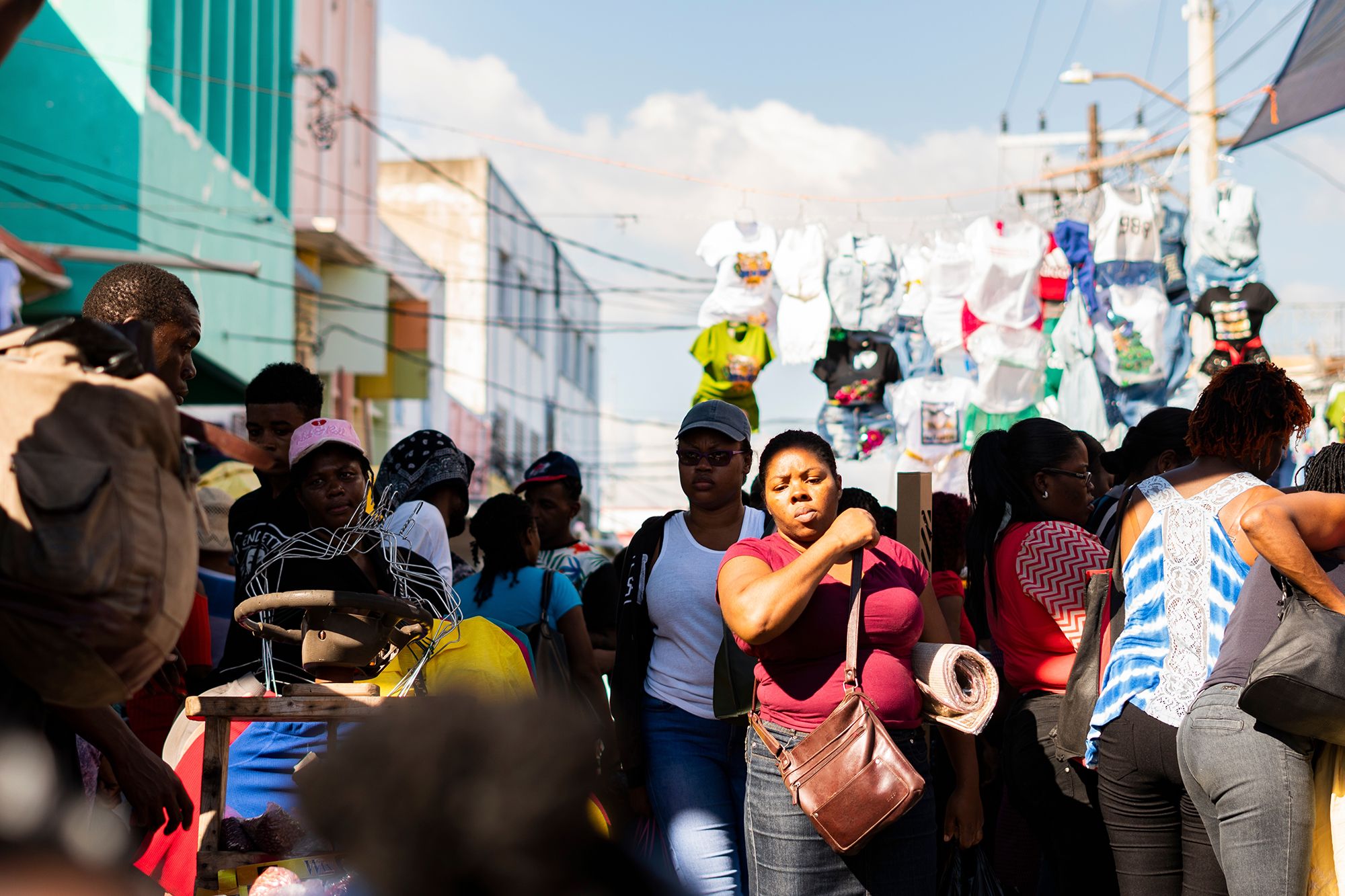
Image credit: Bussweh/Shutterstock.com
The locals in Jamaica use a language of their own to communicate. This native tongue is known as Jamaican patois, and this language, as well as standard English, is widely spoken on the island. While English speakers won’t have any issues communicating while in Jamaica, it won’t hurt to learn more about the local language.
Here, we’ll be sharing some of the most common Jamaican phrases, sayings, and slang that islanders use in their daily conversations. We hope that it helps you feel right at home with us here in Jamaica.
The most popular Jamaican slang
Without further ado, these are the top Jamaican slang, sayings, and phrases to use when you visit the island:
‘Boonoonoonoos’
Do you want to express that you love something or someone to bits? Then you can use the phrase “boonoonoonoos”, which can be translated as “special person”. For example, you can say that someone is your “boonoonoonoos friend”.
Will you be traveling to Jamaica with your “boonoonoonoos”? If so, you two are bound to have an amazing time!
‘Wah gwaan’
This phrase is usually said with much enthusiasm and can be a good conversation starter. It’s the Jamaican way of asking, “What's up?” or “How are you?”. You may recall when former U.S. President Barack Obama visited Jamaica and presented a now-famous speech before the end of his second term. He greeted his audience using this catchy phrase, resulting in roaring applause!
‘If a dirt, a dirt’
This phrase can be literally translated to, “If it’s dirt, it’s dirt”. It’s a way of saying you have to accept the situation or circumstances you are presented with for what they are. This is one of the newer, trendy Jamaican phrases, and it communicates an acceptance of things that cannot be changed. A well-known alternative for this would be, "It is what it is”.
‘Zeen’
“Zeen” is a simple way of responding and agreeing to something that has been said. The English translation for this is “Seen”, but, in practice, it means “Got it”, “Okay”, or “Yes”. “Irie” is a common alternative for this type of response, which we'll explain more about below.
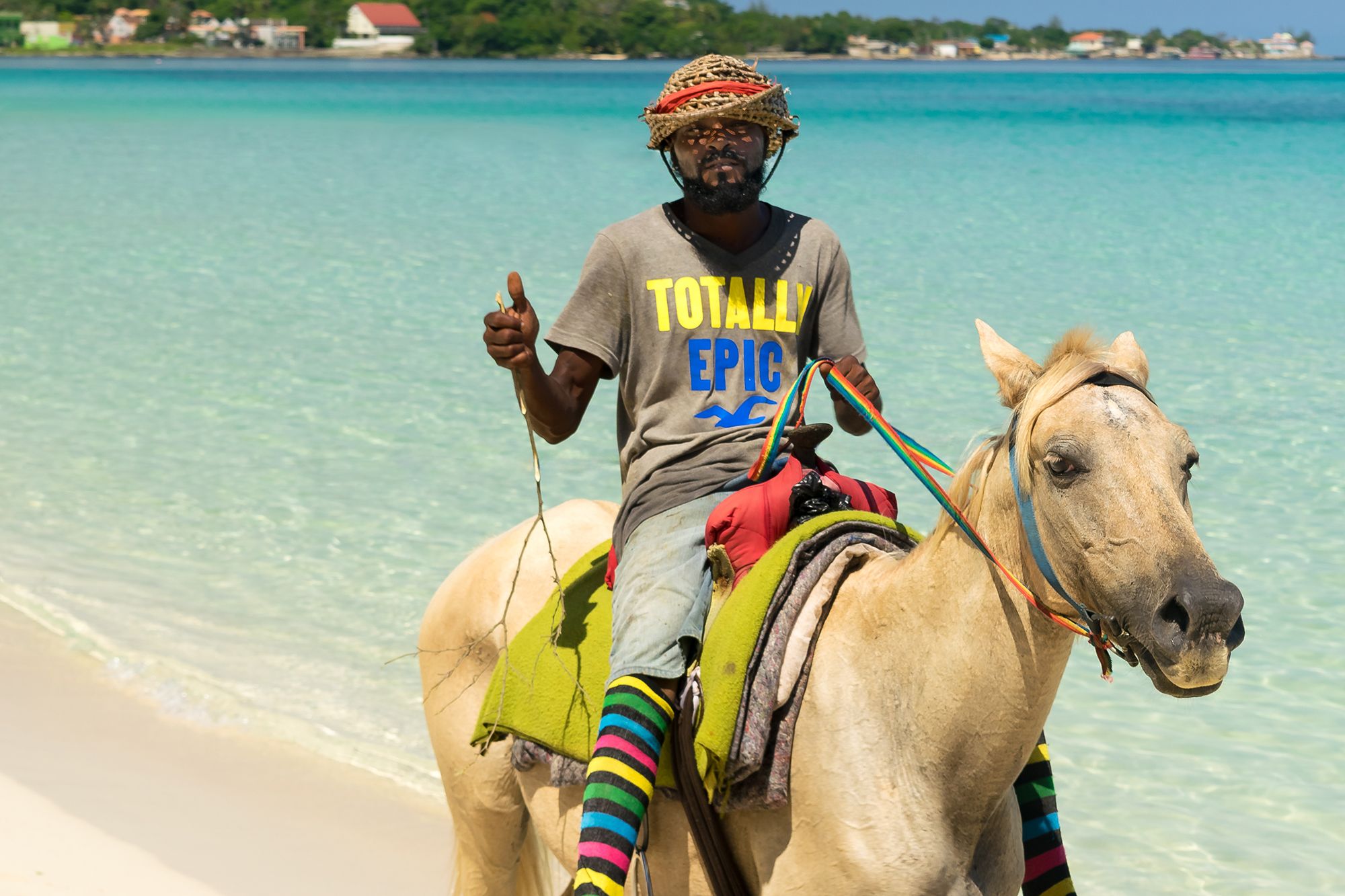
Image credit: Debbie Ann Powell/Shutterstock.com
Good to know: As one of the largest islands of the Caribbean, there are a few airports in Jamaica. Here are the main Jamaica international airports.
Common Jamaican sayings and phrases
‘Weh yuh ah seh’
The Jamaican phrase “Weh yuh ah seh” is very similar to “Wah gwaan”. In a literal sense, this phrase means “What are you saying?”. In Jamaica, you can use this phrase in casual conversations to ask someone how they are doing. The phrase “Weh yuh ah seh” is sometimes shortened to “Weh yaw seh”.
‘Small up yuhself’
You might be left scratching your head if you hear this phrase while on a public bus or making your way around Jamaica. “Small up yourself" is the local way of saying, “Make room”. This phrase comes in handy in crowded spaces among friends or acquaintances. Depending on how it is said, though, strangers may find the request to be rude. So, if you’re on a bus or a taxi or just making your way through a crowded area, you might want to stick with a polite “Excuse me”.
‘Irie’
"Irie" is probably one of the best-known Jamaican terms. It effectively communicates the laidback vibe of the islands. You might hear Jamaicans and other Caribbean people using this Jamaican term to convey, “All is well”. When asked “How are you?” or "How yuh stay?”, it would be perfectly acceptable to respond by saying “Mi irie”. That’s because “irie” can also mean “okay” or "cool." The phrase “Mi irie” translates to “I'm cool”. Of course, there are many other Jamaican phrases that are used for greetings on this island.
‘Mi deh yah, yuh know’
“Mi deh yah, yuh know” literally translates to “Everything is okay, you already know.” This can also mean, “I’m doing well”. The phrase is commonly used in response to “Wah gwaan”. Most people who say this will say it very fast, so you’ll have to listen closely to catch on. When you’re saying it, be sure to pronounce it properly and say it quickly, like one complete word: mi-deh-yah!
'Weh yuh deh pon'
“Weh yuh deh pon” translates in English to, “What are you up to?”. This phrase is most often used when greeting a friend. Should you run into a local acquaintance while spending the day exploring your resort or around town, this would be a perfectly welcome conversation starter. If you’re on the receiving end of this question, then you can respond by saying something like “Mi deh yah”.
‘Ya mon’
“Ya mon" is right up there with “irie” in terms of popular Jamaican phrases. Though this would literally translate to “Yeah, man”, "Ya mon” can be said to any person regardless of gender or age. In the literal sense, this phrase translates to “No problem” or “Okay.” A good time to use this phrase would be if you’re offered an ice-cold island-inspired cocktail or beer. Then you can respond with an enthusiastic, “Ya mon!”
‘Dead wid laugh’
Vacations are all about having unforgettable moments filled with relaxation and laughter. If a particular person or circumstance makes you laugh to the point that you can barely contain yourself, then you might want to use a phrase like “Mi dead wid laugh”. This phrase means “Dying with laughter”. You’re sure to come across many funny and chill people on this island, so we're sure this is one of those phrases you’ll end up using more than once.
‘Inna di morrows’
“Inna di morrows” is the Jamaican way to say "See you tomorrow”. It may be used along with other phrases, for example, "Mi a leff, inna di morrows”. Your tour guide or bartender may say this as they sign off their shifts, but you can test it out yourself to let someone know you’ll see them again the next day.
‘Inner luv’
“Inner luv” is one of those Jamaican phrases that can help you connect with the locals when used right. This phrase means that one has a deeper love and appreciation for a particular thing or moment. For example, you might say, “Mi have inner luv fi your time”, to compliment the restaurant staff for their service. Using this term conveys that you appreciate something.
‘Mi soon come’
“Mi soon come” translates to “I’ll be there soon” or “I’ll be right there”. This Jamaican phrase can be tricky as ‘soon’ can mean many things! When you’re soaking up the sun on this sunny isle, you’ll have a greater appreciation of how and why things seem to slow down on ‘island time’. So if someone tells you “mi soon come”, it’s best not to hold your breath. They may arrive in a few minutes, hours, or even a few days!
‘Mash up’
“Mash up” is common in Jamaica and across the entire Caribbean. It can be used as a verb or adjective to mean “Demolish/demolished” or “Destroy/destroyed”. You’ll likely hear this used in reference to something that is in disarray, and the term also carries some level of disbelief or shock.
‘Bless up’
“Bless up” is the Jamaican way of saying “Have a nice day”, and the phrase is sometimes used as a greeting or goodbye. “Bless up” carries with it some good Jamaican vibes, and you can use it in conversations to wish someone well.
‘Lickkle more’
The English translation for "Lickkle more” is actually “Little more”, but it’s often used outside of the context you’d expect. People normally mean “See you in a little while”, “See you later" or “Goodbye” when they use the term. You’ll hear this often when parting ways with people while on the island.
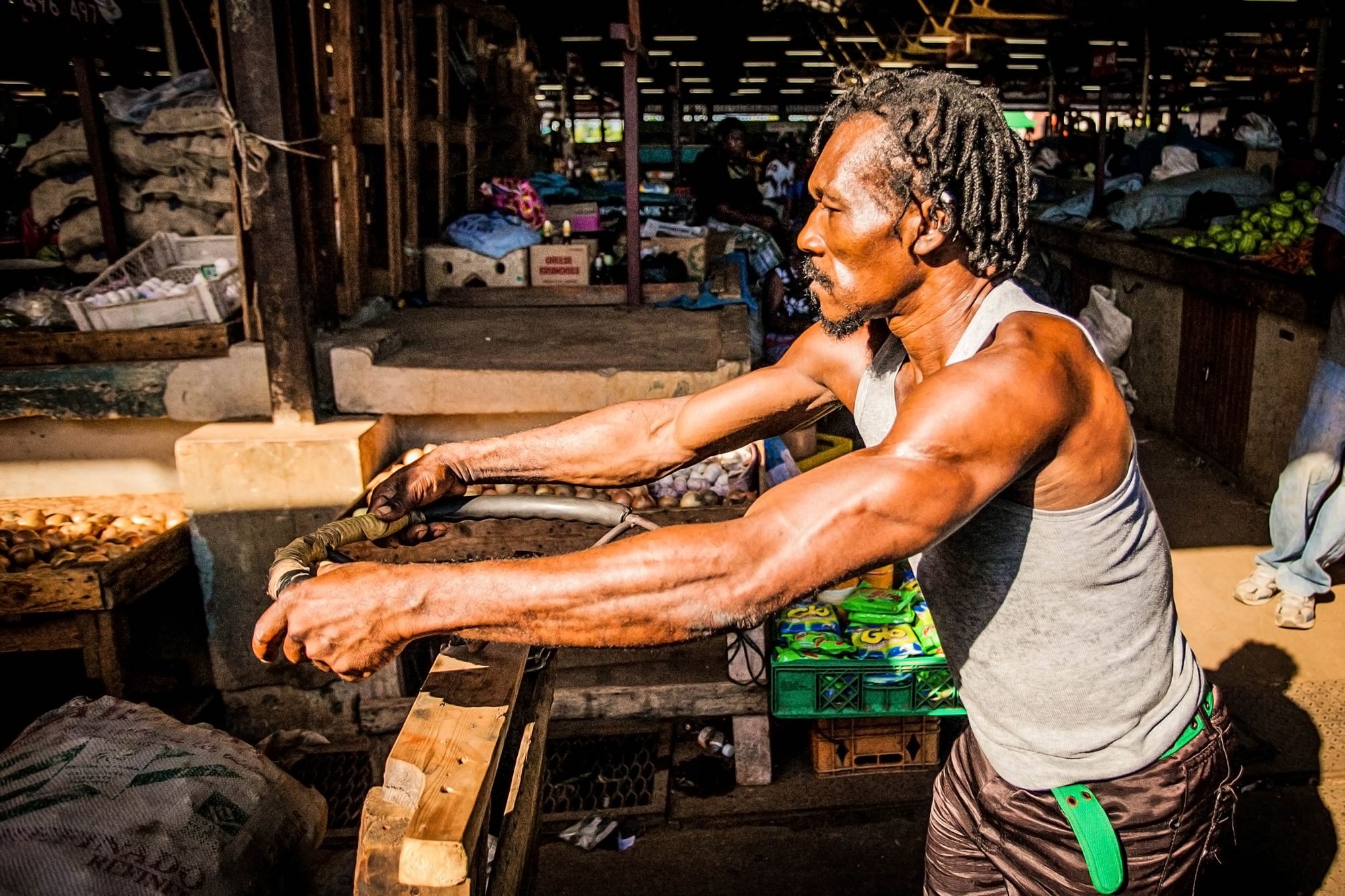
Image credit: Photo Spirit/Shutterstock.com
Good to know: There’s a lot to discover about Jamaica, its people, and history. Once you get the hang of the lingo, you can jump right into our post detailing the origins of the flag of Jamaica.
Funny Jamaican sayings
In addition to the common sayings you might pick up while getting to know Jamaica, you might hear some rather humourous phrases and sayings as well. Here are some that are both catchy and hilarious:
"Blabba mout”
“Blabba mout” is somewhat self-explanatory and translates to “blabber mouth” in English. This term, both in English and in Jamaican slang, is often used to describe someone who talks too much. Chatterbox is a popular alternative.
“Talk and taste your tongue”
Truly, no one ever really thinks about tasting their tongue while they talk. This Jamaican phrase, on the other hand, suggests you do so, though not in the literal sense. The “talk and taste your tongue” saying communicates the importance of thinking before you speak.
“Every hoe have dem stik a bush”
Used as a reassuring phrase for single people, this phrase is a roundabout way of saying, “Don't lose hope!”. “Every hoe have dem stik a bush” translates to mean that there’s someone out there for everyone.
“De olda de moon, de brighter it shines”
You might hear the phrase, ‘De olda de moon, de brighter it shines” which refers to the wisdom that can come with age. The phrase means, “the older the person, the wiser he or she is.” The sentiments of this Jamaican phrase can often be seen in other cultures through various other sayings.
“Sake a mout fish get ketch”
There are some Jamaican phrases that will have you either scratching your head or doubling over in laughter. This is one of those! The “sake a mout fish get ketch” phrase is a play on words that people who engage in fishing will understand. It literally means that talking too much can get you into trouble.
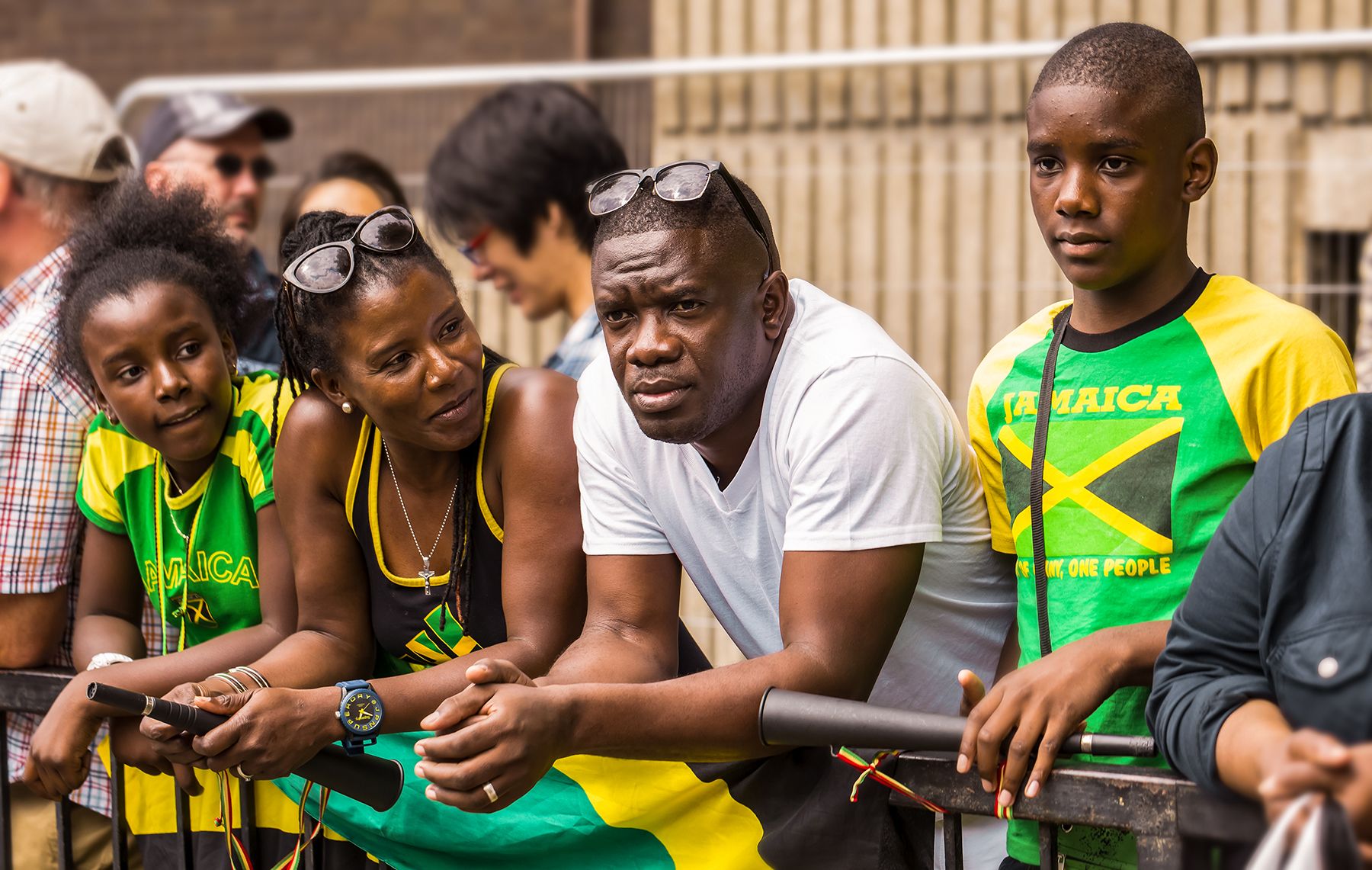
Image credit: Ms Jane Campbell/Shutterstock.com
Expert tip: As fun as it can be to learn a bit of Jamaican patois, it's reassuring to know you won't need to master the language in just one trip. Just knowing a little bit about the local language is usually enough. Of course, if you want to dive a little deeper, you can also explore some Jamaican culture and traditions.
Connect with the locals using Jamaican sayings and phrases
Most Caribbean islands have their own language that the locals use to communicate with one another. Jamaica is no exception. The great news is that you can pick up some of the local lingo of this destination before even touching down at the airport. With the common Jamaican sayings and phrases listed in this post, you’ll be well-versed and more than ready for your next vacation there.
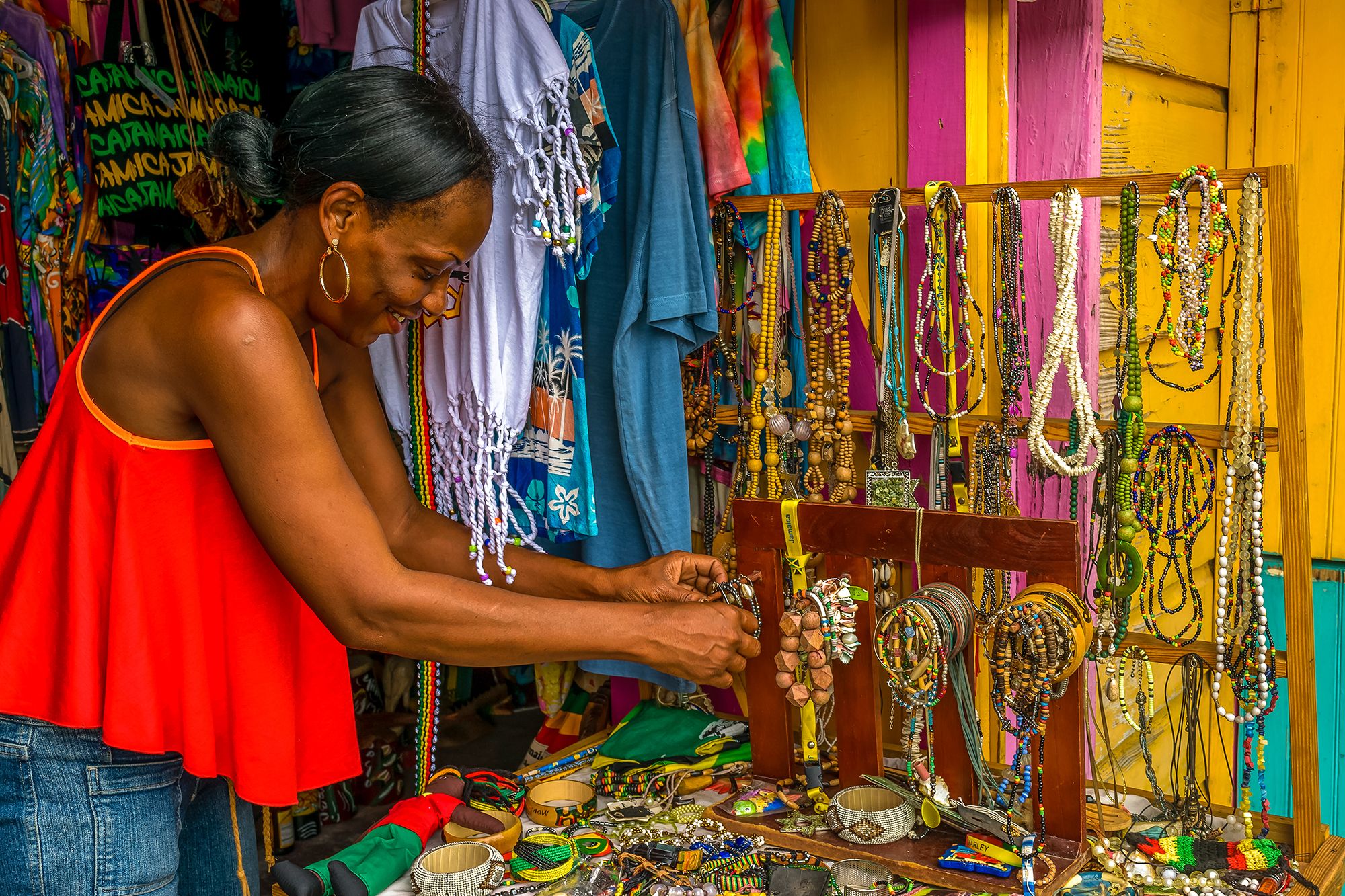
Image credit: Debbie Ann Powell/Shutterstock.com
Expert tip: Planning on traveling to Jamaica? Use our handy checklist of what to pack for a vacation in Jamaica so you don’t leave any of your essentials behind!

 11 months ago
750
11 months ago
750
 English (US) ·
English (US) ·